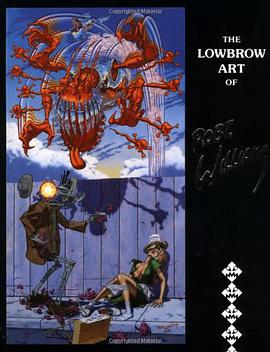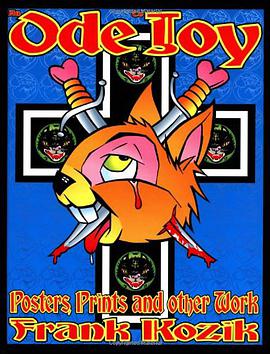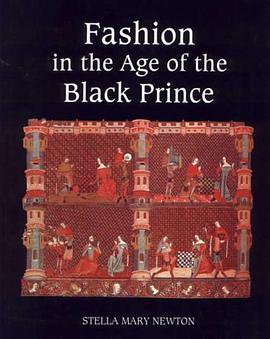

具体描述
This literary critical study counters the usual tendency to segregate Southern literature from African American literary studies. Noting that William Faulkner and Flannery O'Connor are classified as Southern writers, whereas Zora Neale Hurston and Richard Wright are considered black authors, Timothy P. Caron argues for "an integrated study of the South's literary culture". He shows that the interaction of Southern religion and race binds these four writers together. Caron broadens our understanding of Southern literature to include both white and African American voices.Analyzing O'Connor's Wise Blood, Faulkner's Light in August, Hurston's Moses, Man of the Mountain, and Wright's Uncle Tom's Children, Caron shows that these writers share an intertwined concern for issues of race and religion. These two significant components of Southern culture form the intertextual network that binds together such seemingly disparate texts. These authors not only interact among themselves in acknowledged and unacknowledged ways, but also with the South's discursive practices. Most particularly, Caron sees common "struggles over the Word", as he investigates how these writers use the Bible in their understandings of race and religion in the American South. While all four authors argue for the centrality of the Bible in both the black and white Southern experience, each offers a different view of how this iconic text has shaped Southern culture and its literature.
作者简介
目录信息
读后感
评分
评分
评分
评分
用户评价
这本书的排版布局简直是一场视觉的盛宴,字体选择上充满了智慧,那种衬线体的优雅与清晰度达到了完美的平衡,即便是在长时间阅读状态下,眼睛也不会感到明显的疲劳。行距和字间距的设置,也经过了精心的数学计算,使得文本块在页面上形成了一种富有节奏感的呼吸感,而不是拥挤不堪的文字堆砌。更值得称赞的是,作者巧妙地利用了页边空白,这不仅仅是印刷规范的要求,更是一种留白艺术的体现,它为读者的思绪提供了必要的喘息空间,让那些深刻的论点得以沉淀。那些关键的概念和引文,都使用了细微的粗体或斜体来强调,这种微妙的区分,极大地提升了信息的层级感,阅读起来思路异常顺畅。我甚至发现,在某些章节的转折处,设计者加入了一些非常克制的装饰性分隔线,它们既不喧宾夺主,又恰到好处地起到了章节过渡的作用,这种对阅读体验的深度关注,体现了出版方极高的专业素养。
评分坦白说,这本书的语言风格是极其考验读者的,它绝非那种旨在快速取悦大众的流畅叙事。作者的措辞充满了古典的韵味和学者式的审慎,用词的选择上极为考究,经常使用一些现代口语中已经退居二线的精确词汇,这要求读者必须保持高度的专注力,稍有走神,就可能错过一个细微但至关重要的语义转折。句子结构往往是复杂的复句,包含了多重从属关系,需要反复咀嚼才能完全领会其全部的内涵。但正是这种挑战性,赋予了阅读过程一种别样的成就感,每当成功解构一个长句的内在逻辑时,都会带来一种智力上的满足。这不是一本可以伴着咖啡因匆匆读完的书,它更像是一场智力上的马拉松,需要全身心的投入和对语言艺术的敬畏之心,它迫使我放慢速度,真正去体会每一个词语被赋予的重量和意图。
评分这本书为我的思维模式带来了显著且持久的影响,它不是那种读完就扔在书架上的消遣品,而更像是一副可以持续调试我们看待世界的滤镜。我发现自己开始下意识地运用书中介绍的分析框架去审视日常生活中的各种现象,那种原本认为天经地义的认知,现在都蒙上了一层需要被质疑的阴影。作者所构建的那个理论模型,已经像一个底层操作系统一样,潜移默化地改变了我信息处理的底层逻辑,我开始更加关注现象背后的结构性力量,而非仅仅停留在表面的事件描述上。更重要的是,它激发了一种强烈的求知欲,让我迫不及待地想去探索与其相邻或对立的学术领域,去验证、去补充、去挑战书中提出的某些观点,这本书成功地完成了一项伟大的任务:它没有提供最终答案,而是提供了一套更有效率的提问工具,引导我走上了更广阔的探索之路。
评分这本精装本的印刷质量简直令人惊叹,纸张的纹理摸上去很有分量感,装帧设计也透露出一种低调的奢华,每一个细节都处理得非常到位,让人在阅读之外也能享受到一种视觉和触觉上的愉悦。我特别喜欢它封面上那种深沉的色彩搭配,那种带着历史厚重感的色调,让人一拿到手就觉得这是一本值得细细品味的著作。书页边缘的裁切非常平整,即便是频繁翻阅,也丝毫没有松散的迹象,这对于经常需要查阅资料的读者来说,无疑是一个巨大的加分项。装订方式也十分考究,无论摊开到哪一页,书脊的弧度都恰到好处,既能保证阅读的舒适度,又不会对书本造成永久性的损伤。总而言之,从物质层面来看,这本书绝对是收藏级别的,制作方在每一个环节都倾注了匠心,完全对得起它所承载的内容价值,拿在手里翻阅,本身就是一种享受,它散发出的那种经典气息,是许多当代快消书籍所无法比拟的。
评分当我深入这本书的论述结构时,我立刻被其内在逻辑的严谨性所震撼。作者似乎拥有一种近乎手术刀般的精确性,能够庖丁解牛般地剖析复杂的议题,将那些纠缠不清的脉络梳理得井井有条。每一章节的论点都像是一块块坚实的基石,层层递进,没有丝毫的空泛或跳跃,这种结构上的完整性,使得即便是在面对极其晦涩的专业术语时,读者也能通过清晰的上下文指引,找到理解的路径。我尤其欣赏其论证过程中的那种“非黑即白”的坚定立场,但有趣的是,这种坚定性并非是僵硬的教条,而是在充分展示了对立面观点之后,才做出的审慎选择,这展现了作者深厚的思辨功力。阅读过程中,我不断地在脑中构建着作者的思想地图,发现它如同一个精密运转的钟表,每一个齿轮都咬合得天衣无缝,这远超出了普通论述文的范畴,更像是一种思想体系的构建蓝图。
评分 评分 评分 评分 评分相关图书
本站所有内容均为互联网搜索引擎提供的公开搜索信息,本站不存储任何数据与内容,任何内容与数据均与本站无关,如有需要请联系相关搜索引擎包括但不限于百度,google,bing,sogou 等
© 2026 book.wenda123.org All Rights Reserved. 图书目录大全 版权所有




















